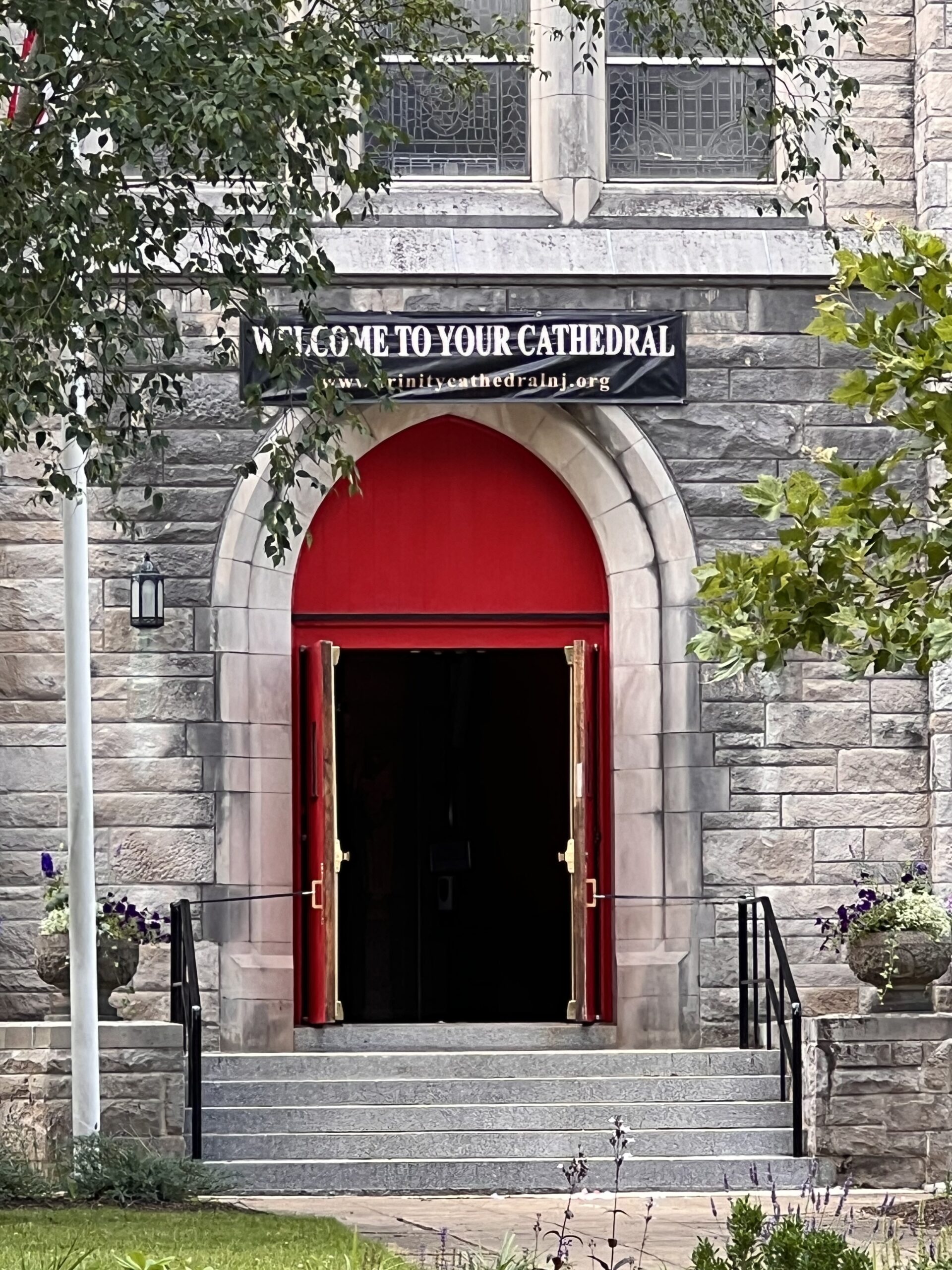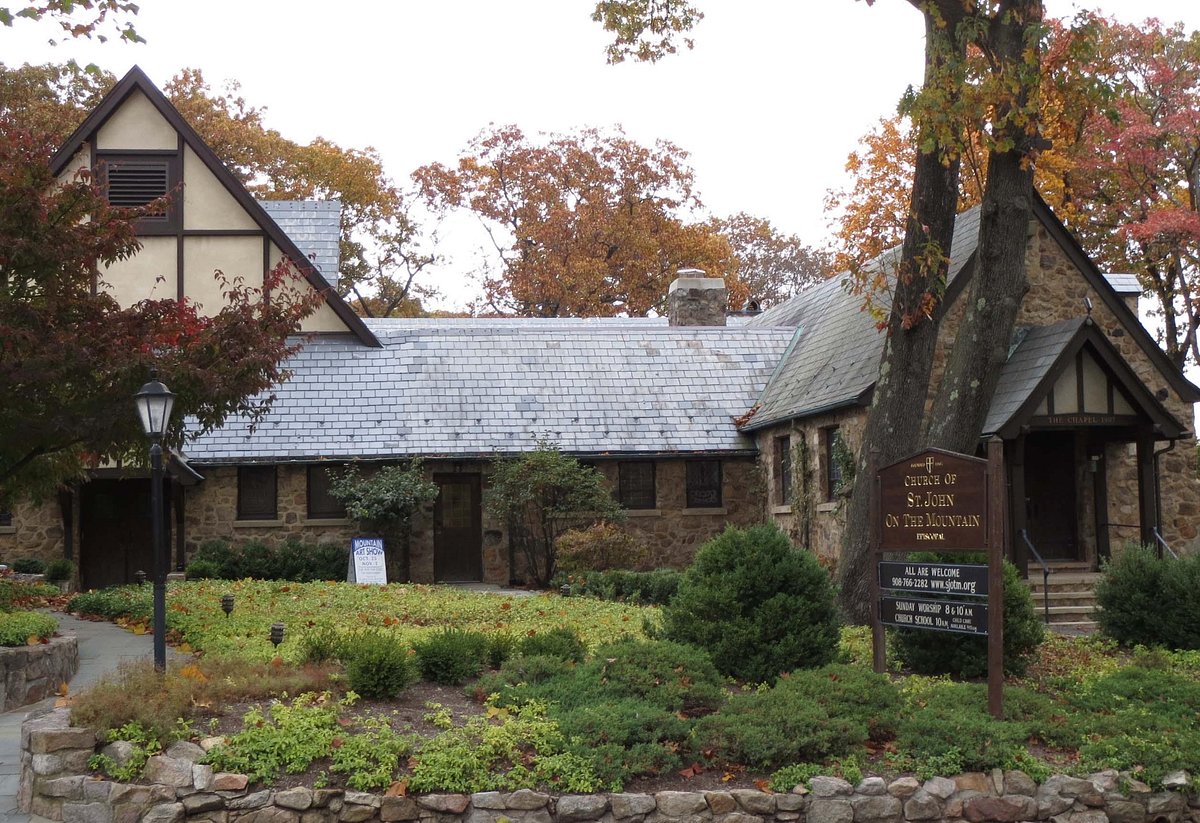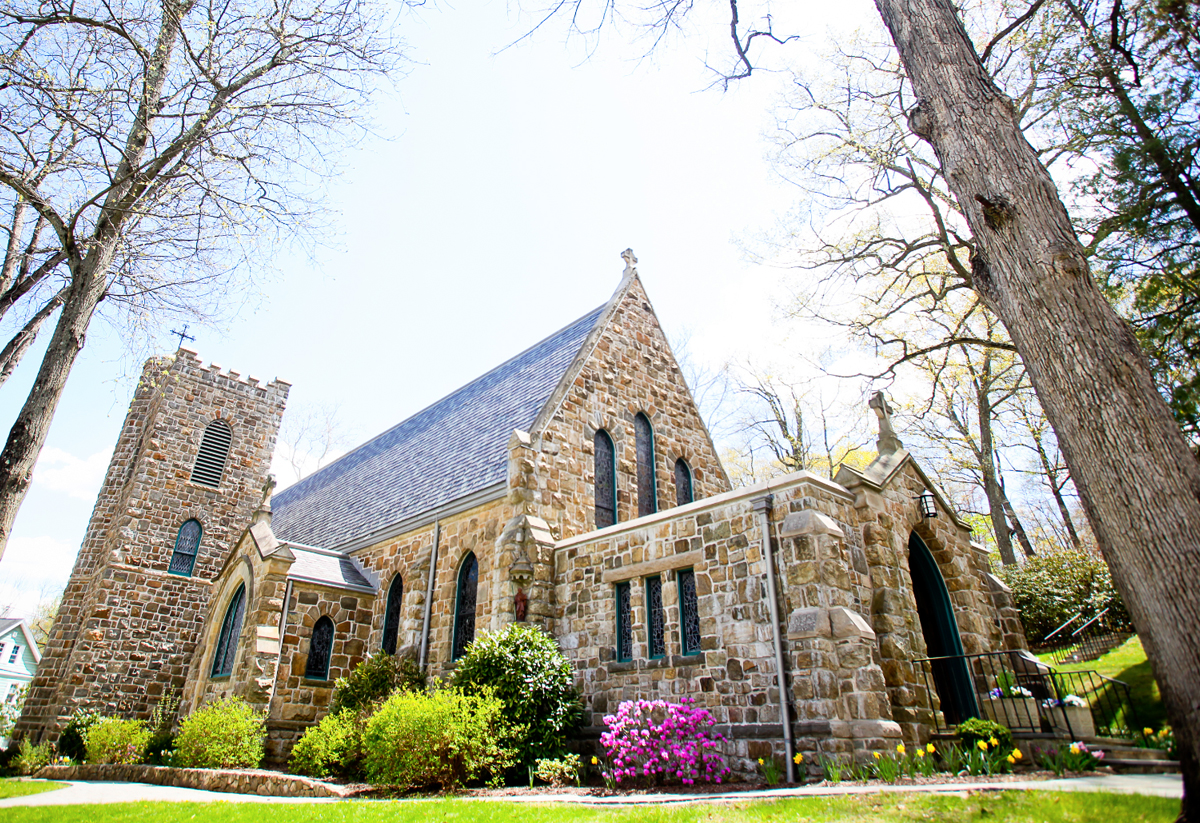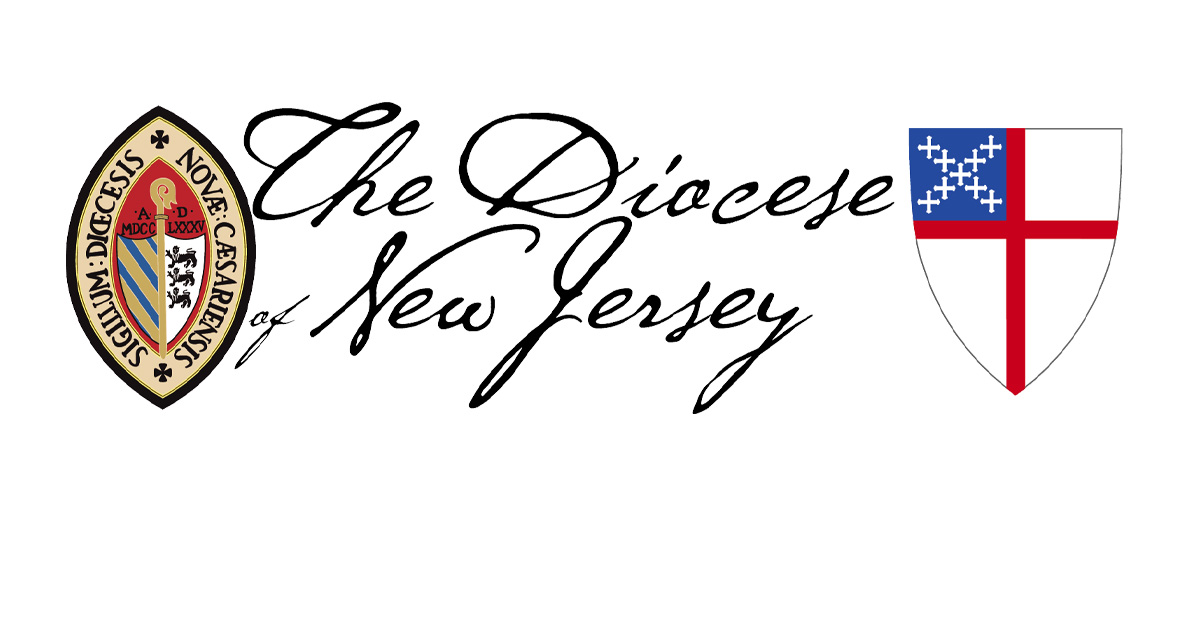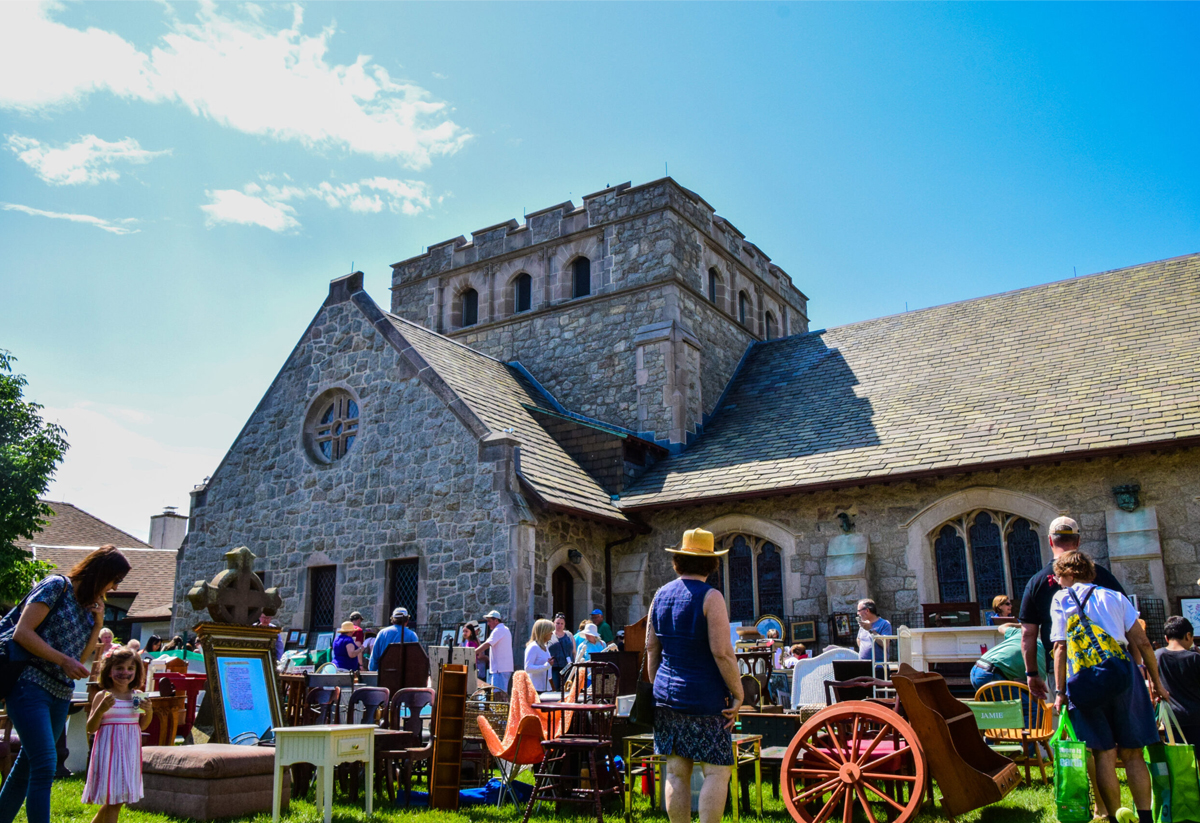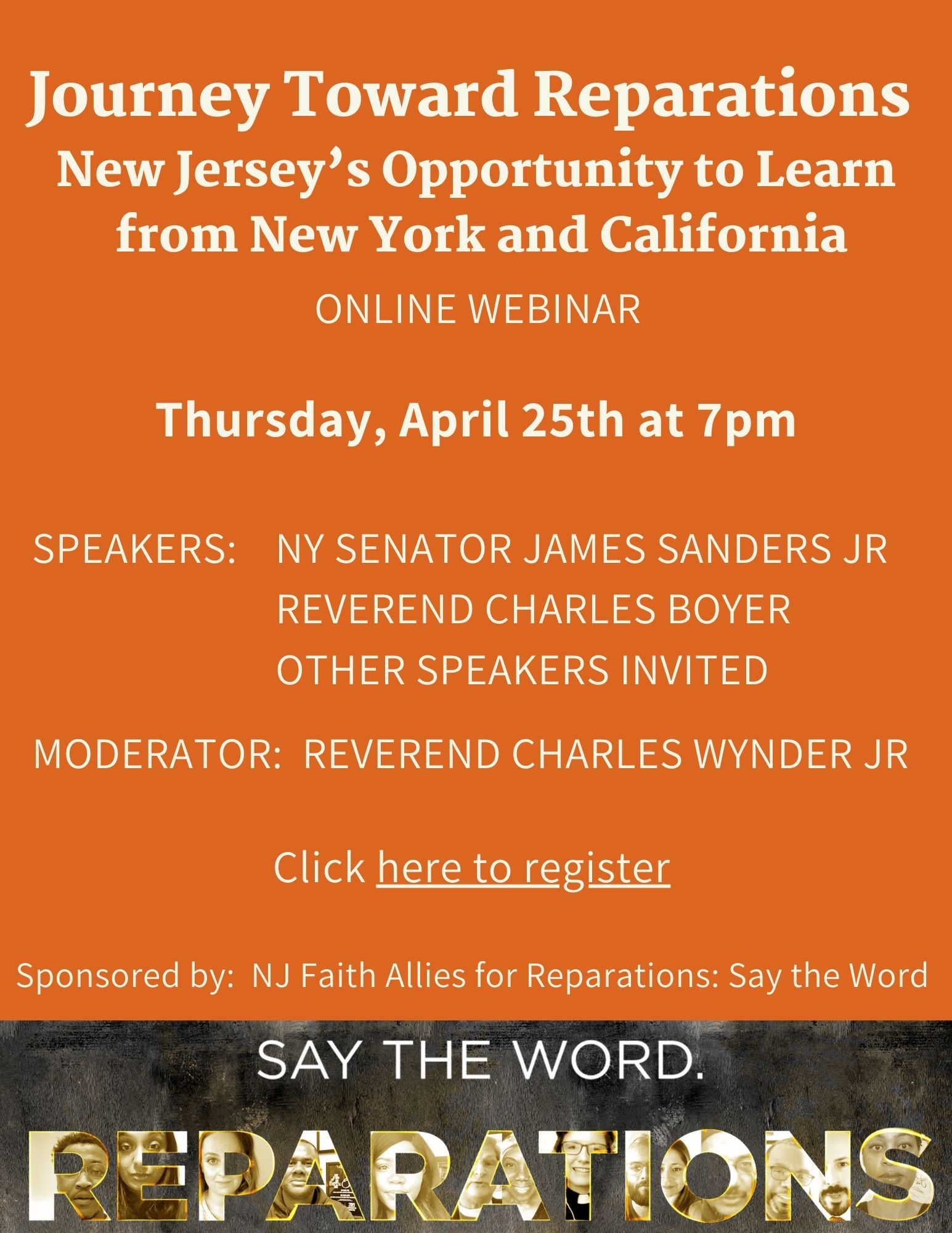The Bishop’s Address
The 222nd Annual Convention
The Episcopal Church in the Diocese of New Jersey
March 3, 2006
Did you see the signs in Torino?
Every time I tuned into the televised coverage of the Winter Olympics over the last couple of weeks, I saw banners and signs at every venue that read, “Passion lives here.”
Passion lives here. Is there any passion in the Diocese of New Jersey? What is passion? It’s a strong emotion or a consuming desire. For the Olympian competitor, it’s the total dedication of one’s utmost effort to win the gold. For the Christian, it’s agape love. It’s the love that is so strong that it is willing to suffer and to sacrifice and to die for the sake of the beloved. Passion is the life, the career, the being of Jesus Christ, who suffered and died for the sake of a lost world. Passion is the heart of God.
The late Welsh Anglican priest and poet R.S. Thomas set forth an image of our Lord’s heart of passion in his poem, “The Coming.”
And God held in his hand
A small globe. Look, he said.
The son looked. Far off,
As through water, he saw
A scorched land of fierce
Colour. The light burned
There; crusted buildings
Cast their shadows; a bright
Serpent, a river
Uncoiled itself, radiant
With slime.
On a bare
Hill a bare tree saddened
The sky. Many people
Held out their thin arms
To it, as though waiting
For a vanished April
To return to its crossed
Boughs. The son watched
Them. Let me go there, he said.
“Let me go there.” The Passion of our Lord Jesus Christ is to go there; to live and to die, in order to redeem a sinful and broken world. “Let me go there.” The Risen Christ wants to go there, still: to Louisiana and Mississippi; to Darfur and Chad; to Baghdad and Kabul; to South Asia, traumatized by the tsunami; to Africa, devastated by HIV/AIDS; to poor people everywhere who have lost dignity and hope. In the face of human suffering anywhere, Jesus says, “Let me go there, so that they can see that my passion, my suffering love, lives here.”
If you and I are listening, what Jesus actually says is, “Let us go there.” Ever since the Day of Pentecost, Jesus’ passion is a passion with partners. His passion lives here through the passion of his Church. His passion lives in those who love and follow him; who are the members of his Body; who, by grace, take up the Cross and are his living presence and carry forward his continuing mission in the world. Every “Episcopal Church Welcomes You” sign could say, “Passion lives here.” “Jesus lives here.” His passion, our passion. His life, our life. He has no other plans.
Passion lives here and you are Christ’s passion. Jesus said, “As the Father has loved me, so I have loved you; abide in my love.” (John 15:9) Christ adores you. You will do nothing more important today than to come to this Holy Table and receive Christ. As I have come to repeat to Confirmands all around our Diocese, it’s as though Jesus were to say, “Dude, I love you and I want you to love me back.”
Do you believe that? Today we remember John and Charles Wesley, two 18th century priests of the Church of England, who did. It made them enthusiastic and passionate people in a passionless Church that thought enthusiasm a “terrible thing” (Joseph Butler). Their hearts were warmed with the experience of being loved, forgiven and freed. They preached and sang their faith, and organized Christian communities around a disciplined method of spiritual growth, so that zeal and inward piety were channeled into outward practices of mission and witness.
Now I’m sure that it is clear to you, as it is to me, that the Episcopal Church could stand to be a little more passionate. We need our Lord to renew our Church with deeper personal piety and greater fervor for evangelism. A little enthusiasm, even!
I am passionate about Jesus and Jersey and I think you are, too. I see our Lord’s work being carried out through our common life in New Jersey. Through the generosity of God’s people, their gifts of money and talent and time, we are poised to accomplish the following in 2006:
- funding our full diocesan commitment in support of The Episcopal Church;
- funding the full amount requested by the Board of Missions in support of our own mission congregations;
- supporting our Cathedral in Trenton with 2% of Fair Share income;
- supporting outreach ministries in Africa and other parts of the world that address the United Nations Millennium Development Goals with 0.7% of Fair Share income;
- continuing benefits for our retired clergy, clergy widows and orphans;
- expanding our communications program, led by a full-time Director of Communications;
- opening a new Ministry Institute in the fall, providing education, formation and training for lay ministry in the Church and in the world;
- sustaining our programs for youth, training seminarians, partnership with El Salvador, anti-racism, congregational development and other ministries;
- maintaining a small, dedicated staff that serves this large jurisdiction with grace, competence and joy;
- and initiating a diocesan visioning process to discern how our Lord is leading us to develop our mission in New Jersey over the next chapter in our 220 year history;
Along with these prospects, we have some pressing realities to face together.
The hard facts are these: by several measurements, we are a diocese in decline, in the midst of a denomination in decline. The Episcopal Church has fewer people than it did even ten years ago. Active membership has declined by seven percent over the years 1994-2004. Average Sunday attendance has declined by four percent in that same ten year period. Like all other mainline churches, the Episcopal Church is largely made up of an older membership. We may be born again, but we’re not getting any younger.
There is some good news. The average annual pledge rose for the seventh straight year in 2004, to $1881, and outpaced inflation. Even better, the percentage of active baptized members who attend church weekly is nearly 35% — a number that is within the same range as some of the fastest growing denominations. (The Living Church, Nov. 27, 2005).
From a diocesan perspective, we have some hard financial realities to face in New Jersey. Canon Lee Powers has researched our funding of diocesan ministries in 2005 and compared them with 1992. In 1992, our Diocese received 88.5% of its Fair Share Askings from the congregations; an amount equal to 14.6% of the aggregate total of parish income. In that 13 year period, 1992-2005, total parish income rose 66%. In 2005, however, our Diocese received only 65% of its Askings of the parishes; an amount equal to 9.3% of total parish income. Apparently, those resources want to stay closer to home.
I want to thank all of those churches of our Diocese that have pledged the full Asking in support of our common mission in 2006. I want to thank all of those churches that, while not yet giving the full Asking, have committed themselves to a plan and are making strides toward that goal. I thank God for all those churches that are trying. In my view, the funding formula adopted by Convention three years ago is sound and fair. I asked that we eliminate the request for one percent for new projects. At such time as we have new projects, we will find a way to rally diocesan support. Along with that adjustment, I have assured you that there will be no penalties for those churches that do not meet the Full Asking. Partners are partners, even when one partner is hurting. I hope that, having agreed to this approach and practiced it for three years, this Convention will now set it in the Canons of our Diocese. I have no interest in revisiting this matter. There are too many missionary opportunities for us to expend any more energy on this. Let’s embrace this approach and live it, as faithfully as we can, together, for Christ’s sake.
Our challenges are not with budgets and funding formulae. Our challenge is, “Does passion live here?” Are we committed to live the passionate love of Jesus Christ together as one Church in the Diocese of New Jersey?” I heard recently that the purpose of marriage is to convince me that there is at least one other person in the world. That observation leads me to say that the purpose of a Diocese is to convince us that there is at least one other congregation in the world. It’s not finance, but congregational health and personal holiness. Holy people and healthy congregations give for mission, first. It’s one of the great gifts of our polity: to know our neighbors as members of the same Church.
As Archbishop Rowan Williams writes in his book, Where God Happens, “The neighbor is our life; to bring connectedness with God to the neighbor is bound up with our own connection with God. The neighbor is our death, communicating to us the death sentence on our attempts to settle who we are in our own terms and to cling to what we reckon as our achievements. . . . We love God when and only when we are the conduit for God’s reconciling presence with the person next to us.” We abide in Christ’s love only when we abide with our neighbor, in reconciling love and sacrifice.
Look at us. Look at our abundance: 160 churches, 300 priests, 60 deacons and 50,000 members, (and, yes, a $3 million annual budget), set in the richest state in a nation where only one in five people is in church on a given Sunday. Most of the Anglican Communion – not to say the Christian Church throughout the world – would love the opportunity to do mission in our context. We have all the resources to do all that our Lord is asking us to do. We just need hearts to be warmed, lives to be changed and passion to be kindled. We need to become a missionary diocese for the 21st century so that it could be said of New Jersey, “Passion lives here. Jesus lives here.”
One of the developments of the past few months is the appointment of a Steering Committee for a visioning process to enable us to discern our next steps in mission. It is an awesome task, to be approached with humility, faith, courage and confidence. And with respect for the labors of those who have gone before us. One of those is the Right Reverend George Washington Doane, Second Bishop of New Jersey (1832-1859). Doane’s motto for his personal life and throughout his episcopate was, “Right Onward!”
What I cherish about Doane’s legacy is the missionary spirit that he not only proclaimed but lived. Doane was indefatigable. During his episcopate the Diocese of New Jersey grew faster than the state of New Jersey. The 32 parishes of the Diocese in 1832 became 85 by 1859. The number of diocesan priests increased five-fold. And the number of communicants rose from 900 to 5,000. Not surprisingly, it was Bishop Doane who, at the General Convention of 1835, led the effort to declare the entire Episcopal Church a missionary society and to appoint missionary bishops. To this day, the formal name of our Church is, “The Domestic and Foreign Missionary Society.”
Out of regard for that missionary heritage, the Committee adopted “Right Onward” as the title for our visioning effort. You will be hearing more from Ms. Annette Buchanan and the Rev. Philip Carr-Jones, Co-Chairs of the “Right Onward!” Steering Committee, in the course of this Convention. It is my hope that we will have a mission statement and a vision, together with a set of specific missionary objectives, ready for adoption by our next annual meeting of Convention. I beg you to keep this effort in your prayers.
Another development of the past year is the inauguration of the Ministry Institute in the Diocese of New Jersey. The General Convention of 2003 revised the Canons so that dioceses have to restructure the Commission on Ministry. Over these past two years, a “Think Tank” of diocesan leaders and Canon Elizabeth Geitz have developed the plan for that restructuring and, along the way, put forward the vision of a Ministry Institute that will serve as a Center for Adult Ministry Education. I have great hope for the Institute, which is led by Co-Directors Ms. Connie White and the Rev. Linda Moeller. I believe this venture will help strengthen our Diocese and make us better stewards of the gifts and passion for ministry of all of God’s people.
Looking beyond this year to 2007, I want to challenge us to expand the staff of our Diocese. No matter what the results of our visioning process, a diocese is its congregations and can only be as strong and healthy as those congregations are. We need more help in caring for congregations and helping them to develop their mission and ministries. You will find in the proposed preliminary budget for 2007 a new staff position in the field of congregational development. We need a gifted and dedicated leader who will wake up every morning and go to work with clergy and lay leaders to help churches to do mission today. I am haunted by the comment of the Rev. Frank Hubbard, that we are perfectly poised to do mission at the turn of the 20th century. We must do better.
Another proposed expansion of staff in 2007 is the addition of a part-time assisting bishop. My prayerful discernment has led me to the conclusion that I will not call for the election of a Bishop Suffragan for New Jersey during my episcopacy. We do, however, need some additional episcopal assistance. Bishop Belshaw and Bishop Pettit have been wondrously faithful and generous with their time and energies by continuing to celebrate, confirm and preach all around the Diocese in the years of their retirement. I am deeply grateful for their assistance. I believe that we need more help.
In June the General Convention of the Episcopal Church will gather in Columbus, Ohio. In addition to the usual business of the Convention we will elect the 26th Presiding Bishop and offer our Church’s official response to the Windsor Report, which was published in the fall of 2004 by the Lambeth Commission on Communion. We have spent a good deal of time and energy in our Diocese in the consideration of the Windsor Report, including a symposium at last year’s Convention and a clergy conference led by the Rt. Rev. Mark Dyer, the only member of the Episcopal Church to serve on the Commission. I am grateful that the Rev. Joan Anders and the Rev. Andrew Hamersley have accepted my invitation to share their views of the Report later this afternoon.
My own reflections on the significance of the Report and the issues arising from the actions of the last General Convention have been helped by a letter of Bishop William H. Folwell, retired of the Diocese of Central Florida. He wrote to Bishop John Howe, the current Diocesan, and Bishop Howe quoted these remarks in his own address to the Diocesan Convention in Central Florida last January.
“If there must be agreement on the issue itself, then of course there cannot be reconciliation. The two positions are not reconcilable in and of themselves.
“However, is it not possible to see reconciliation as between persons and notpositions? You know as well as I that there has never been a time when the Church has been in total agreement on many important issues. But our strength has been from the time of the persecutions that others have seen something unique in Christians: ‘Ah, those Christians, see how they love one another.’ And Christ is glorified.
“For one group of Anglicans to determine that another group is unorthodox for holding a position opposite to theirs, and to declare themselves orthodox, is to pass judgment on our brothers and sisters that is often stated in such a way as to impugn the integrity of their love of Jesus and their faith in his saving grace. To be orthodox, breaking the word into its two components, ‘ortho’ and ‘dox,’ is to offer ‘right praise.’
“Let us somehow once again see Christ in each other, embrace each other in peace no matter how strongly we may feel ‘they are wrong,’ therefore ‘we are right,’ and in so doing praise God afresh.
“If, as the Windsor Report requests, we are to repent, I believe that it will be that all of us need to confess our part in just how we have hurt one another, seek that kind of reconciliation, and share the peace. And then let’s get on with the one unifying aspect of the ‘faith once delivered to the saints,’ namely the mission and ministry of Jesus in and to the world through his Church, not a pre-determined set of propositions that is to be applied to every aspect of human behavior in our time and place, and even to those living hundreds of years from now.”
I affirm what Bishop Folwell says so well and so passionately. And I have hope that our General Convention will respond to the Windsor Report in such a manner that we will continue to love and serve our Lord Jesus Christ with humility and integrity as an autonomous province of the Anglican Communion. To echo something Bishop Dyer said to the clergy last October, I want us to remain a world Communion for the sake of a suffering world. We need one another so that we can show the world that passion lives here; that Jesus lives here. On the day after the General Convention closes, I plan to return to that work and mission, with all my passion, here in New Jersey.
I love being a bishop, most days. Some days I love being a bishop all day. And every day I am honored and humbled to be your bishop. I love this work and the people with whom I am privileged to share it. We are blessed with a very hard-working and deeply committed staff. I love the clergy of this Diocese, who have been so gracious to me. I want to say a special word of gratitude for the ministry of all the ordained women in New Jersey. I thank God for your strong, loving and wise leadership for this Church, for these past 30 years and more. The Holy Spirit has renewed and strengthened our Church through your obedience to God’s call. There was conflict and struggle and there were threats of division and departures, but look at you. You’re here. You’re a blessing. Thank God for you.
“Therefore, since it is by God’s mercy that we are engaged in this ministry, we do not lose heart” (II Cor. 4:1). Or, as Eugene Peterson writes in The Message, “Since God has so generously let us in on what he is doing, we’re not about to throw up our hands and walk off the job just because we run into occasional hard times.”
These are hard times. The world is hurting and the Church is hurting and many of us are hurting. But Passion lives here. Jesus lives here. And because Jesus lives, we, too shall live. He stretched out his arms of love on the hard wood of the Cross to show us what true love, true life, true passion are all about. He was raised on the third day and told us, “Don’t be afraid to live this way.” It’s the only real life. And the only real death is looking for some other way.
We don’t have to get it right, but we have to try. As Thomas Merton reminded us, the desire to please God does, itself, please God. What we accomplish will not be perfect, but it may be the only evidence that some people ever encounter that Jesus lives and his passion lives here.
Earl Palmer, a California pastor, served in a community not known for its cultural sophistication. He used this illustration to teach about the imperfection of the church and of Christians. “When the Milpitas High School orchestra attempts Beethoven’s Ninth Symphony, the result is appalling. I wouldn’t be surprised if the performance made old Ludwig roll over in his grave in spite of his deafness. You might ask, ‘Why bother?’ Why inflict on those poor kids the terrible burden of trying to render what the immortal Beethoven had in mind? Not even the great Chicago Symphony Orchestra can attain that perfection.
“My answer is this: the Milpitas High School orchestra will give some people in that audience their only encounter with Beethoven’s great Ninth Symphony. Far from perfection, it is nevertheless the only way they will hear Beethoven’s message.”
In your life and in my life, in your parish, in our Diocese, we may never achieve what our composer had in mind. But we have to try. The music of the life of Jesus Christ is too good not to try to live that way. The passion of his love is too good not to try to love that way. It’s too good for us not to try to live the reign of God, as Jesus lived it – passionately. We have to sing and serve in reply to the love that has been poured into our hearts by the Spirit. There is no other way for that Good News to be shared on earth. His passion, our passion. His life, our life. He has no other plans.
The Rt. Rev. George E. Councell
XI Bishop of New Jersey

